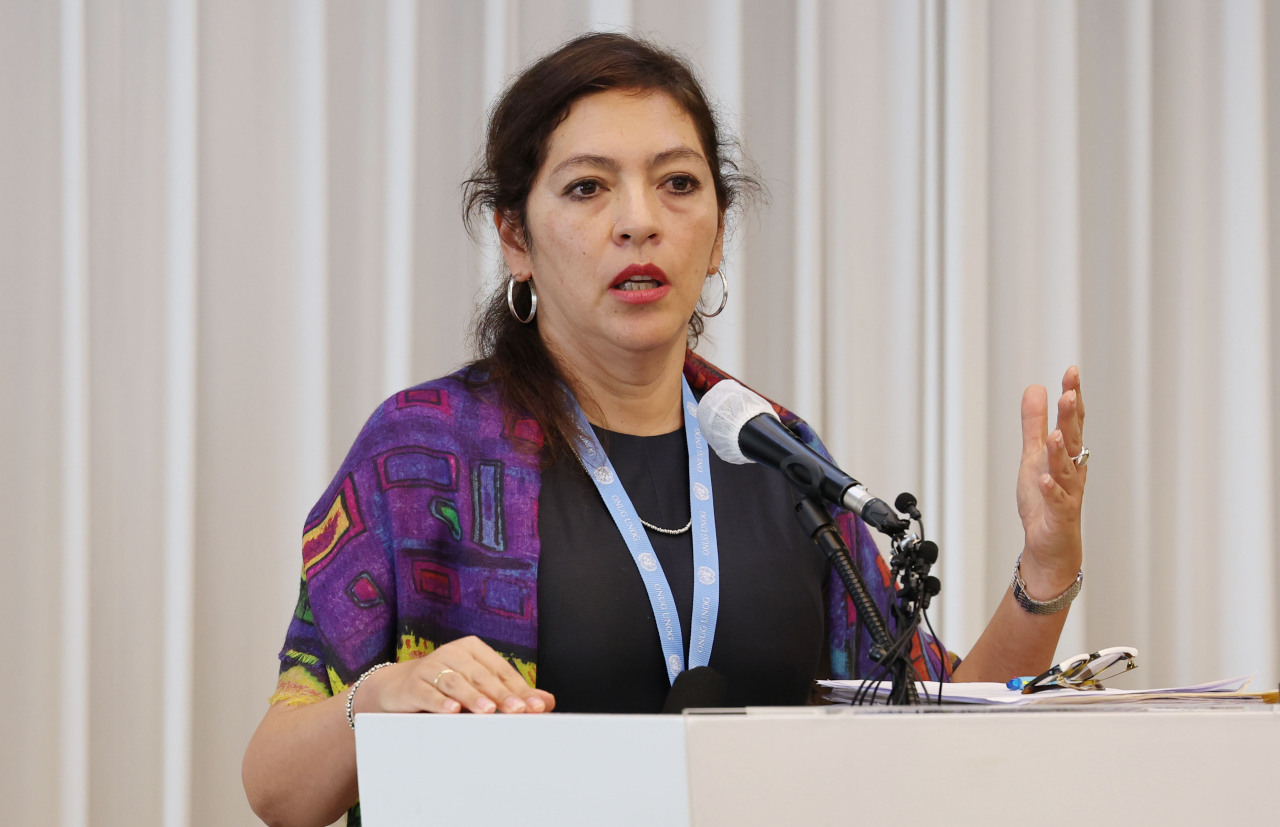 |
UN special rapporteur Elizabeth Salmon speaks during a press conference in Seoul on Friday. (Yonhap) |
Elizabeth Salmon, the newly appointed United Nations special rapporteur on the human rights situation in North Korea, said during her first press conference on Friday in Seoul that she would use her mandate to better protect the rights of women and girls in North Korea.
“I am particularly determined to bring more attention to the experiences of women and girls, to improve understanding of their specific needs, and to better appreciate the adversities they face in the DPRK,” said Salmon, who assumed the mandate on Aug. 1, referring to the North’s formal name, Democratic People’s Republic of Korea.
Salmon said although her predecessors have touched upon the situation facing North Korean women and girls, she believed the gender issue “could be updated in the mandate.”
“I think that the gender framework has improved during these years. We know now more than in the past about the impact violence and human rights violence have on women and girls,” she said.
She added that during her visit to Seoul she had an opportunity to speak with North Korean women who had recently arrived here. When women and girls want to leave North Korea, the violence they face ranges from forced marriage to forced prostitution, she said.
“I will try to seek engagement opportunities with the DPRK authorities through concrete issues such as women and girls’ rights.”
The UN expert also called on China to stop forcefully returning escapees to North Korea.
“My predecessors, communicating these issues to the government of China, have asked repeatedly not to repatriate escapees to the DPRK in line with the principle of nonrefoulement,” she said.
She added, however, that China has held the opinion escapees from North Korea “are illegal immigrants, not refugees, and that nonrefoulement does not apply.”
She raised concerns about the impact of a prolonged border shutdown amid the pandemic on North Koreans.
“I am worried about what is happening to the 40 percent of the population who were already food insecure before the COVID-19 outbreak, and people’s access to health,” she said.
“I heard that the DPRK is interested in receiving vaccinations, this will require capacity development, including in the cold chain, and securing a reliable supply of electricity.”
She said that the COVID-19 measures were feared to have “a disproportionate impact on women and girls” there.
“Women must also be under further pressures during the pandemic as market activities, which the women relied on for their living, were greatly reduced due to border closures,” she said.
“With no alternative source of income, they are still required to feed their family, look after sick family members, while also providing contributions to the state.”
Salmon said that she has made the priority of her visit to “listen to some of the victims of human rights violations in the DPRK and escapees from the DPRK.”
She added that she would “assume a victims-centered approach” throughout the course of her mandate, “providing more opportunities for the voices of the victims to be heard.”
“We should not give up on engagement with the DPRK because what is at stake are the lives of the North Korean people and their human rights.”
By Kim Arin (
arin@heraldcorp.com)








